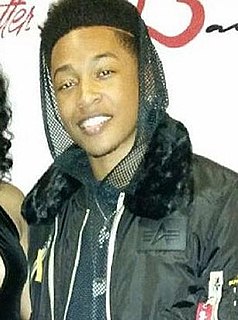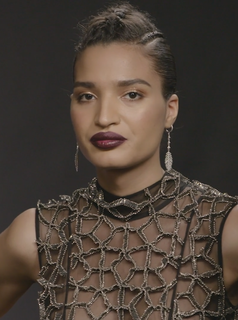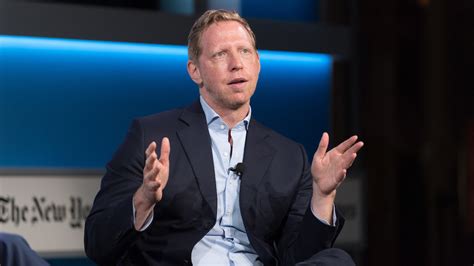A Quote by Lilly Singh
I think what people like about my channel is that I am not perfect. I always point to my pimple, my bad hair day... people relate to that. They are watching somebody who is exactly like them and talking about things that they experience as well.
Related Quotes
I know exactly what that movie's [Brokeback mountain] about. I can't define it; it doesn't tie up in a perfect bow. But it's about adolescence. It's about what it feels like - this isn't meant as a criticism, but like things I didn't relate to, which were high school movies. Where I'd watch it and I'd be like, "Well, am I like the kid that nobody likes? Or am I like the person who everybody [likes]?" I couldn't [tell]. I was like quantifying, putting me in a box. "This is my personality at that age" and "I'm this kind of person" just felt like bullshit to me.
I don't know where this is coming from. What's wrong with my hair? I'm like 'I just made history and people are focused on my hair?' It can be bald or short, it doesn't matter about my hair. Nothing is going to change. I'm going to wear my hair like this during beam and bar finals. You might as well just stop talking about it.
I am mean; I'm nasty at times. I don't feel like talking to people at times. When I am in a bad mood and have had a really awful day, don't come in my face because I am not tolerant and I am not a goddess; I can't handle it after a point. I am going to get up, and I am going to scream, and I am going to say bad things to you.
The radio is good for taking somebody else's experience and making you understand what it would be like. Because when you don't see someone, but you hear them talking - and, uh, that is what radio is all about - it's like when someone is talking from the heart. Everything about it conspires to take you into somebody else's world.
I always find it kind of more interesting when people ask questions like, "What were you like as a kid?" Or just kind of personal history stuff, like, "What was the lowest point of your life?" Because that would be like, "Huh, well, I'd have to think about that one." And then give an honest answer. I think a lot of people don't want to give honest answers, or they just are in business showbiz mode when they're talking about stuff, so that's probably why a lot of that kind of thing doesn't get asked.
What was interesting about Trump, I mean, people always say they want a non-politician. Well, you got it with Donald Trump. And there's good to that, and there's bad to that. The bad is that he can be distracted by talking about these stupid things that - I promise you, no one cares about his taxes.
With me, even if my life depended on it, I wouldn't be able to cry. Not with somebody there. Because even if I'm talking about bad and upsetting things, if there is somebody else in the room, I am trying to entertain them. If there is somebody there, I am in performance mode. I can only cry if I am on my own.
Talking about freedom, about ethical issues, about responsibilities as well as convenience, is asking people to think about things they might prefer to ignore, such as whether their conduct is ethical. This can trigger discomfort, and some people may simply close their minds to it. It does not follow that we ought to stop talking about these things.
There is something I like about talking to journalists that really goes beyond promotion because you aren't just talking to the journalist, but you are talking through them to people who presumably are fans of the Rolling Stones. The interviews give you a chance to say a few things and maybe clear up some of the things people read about the band.
I am not keen on the idea of an oversharer. I don't like that as a problem. I have more of a problem with an undershare. If I'm talking to somebody and I ask them how their love life is and they say "fine," that's a problem for me. I want to know things about people, I feel like we're all here on this planet, and intimacy is important.
Who are we talking about? We're talking about the people that are trying to criminalize Donald Trump. We're talking about the people that are trying to impeach him. We're talking about people who are trying to via innuendo and leak and media assassination, we're dealing with people that are trying to destroy Donald Trump and his press secretary just signaled that they are serious about reaching out to these people to try to get certain things done, legislatively, like infrastructure or tax reform.
I reject criticism because the last thing I wanted was to sit there and look at people talking. I think people are conditioned to think of documentaries now as talking heads. This movie about Valentino is not about that at all. It's about watching people in action. To the critics who wanted more talking heads, I send a dozen dead roses.


































